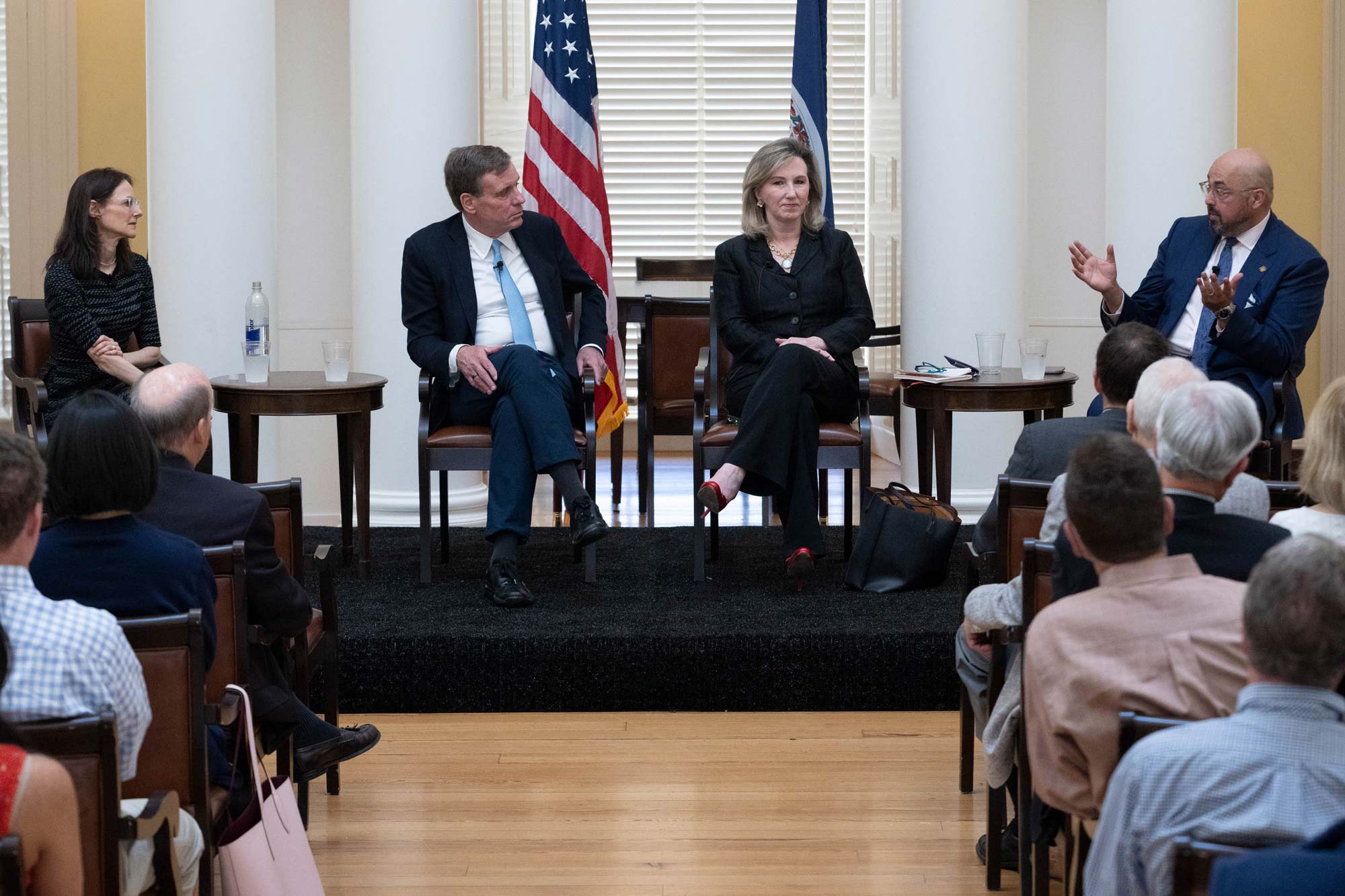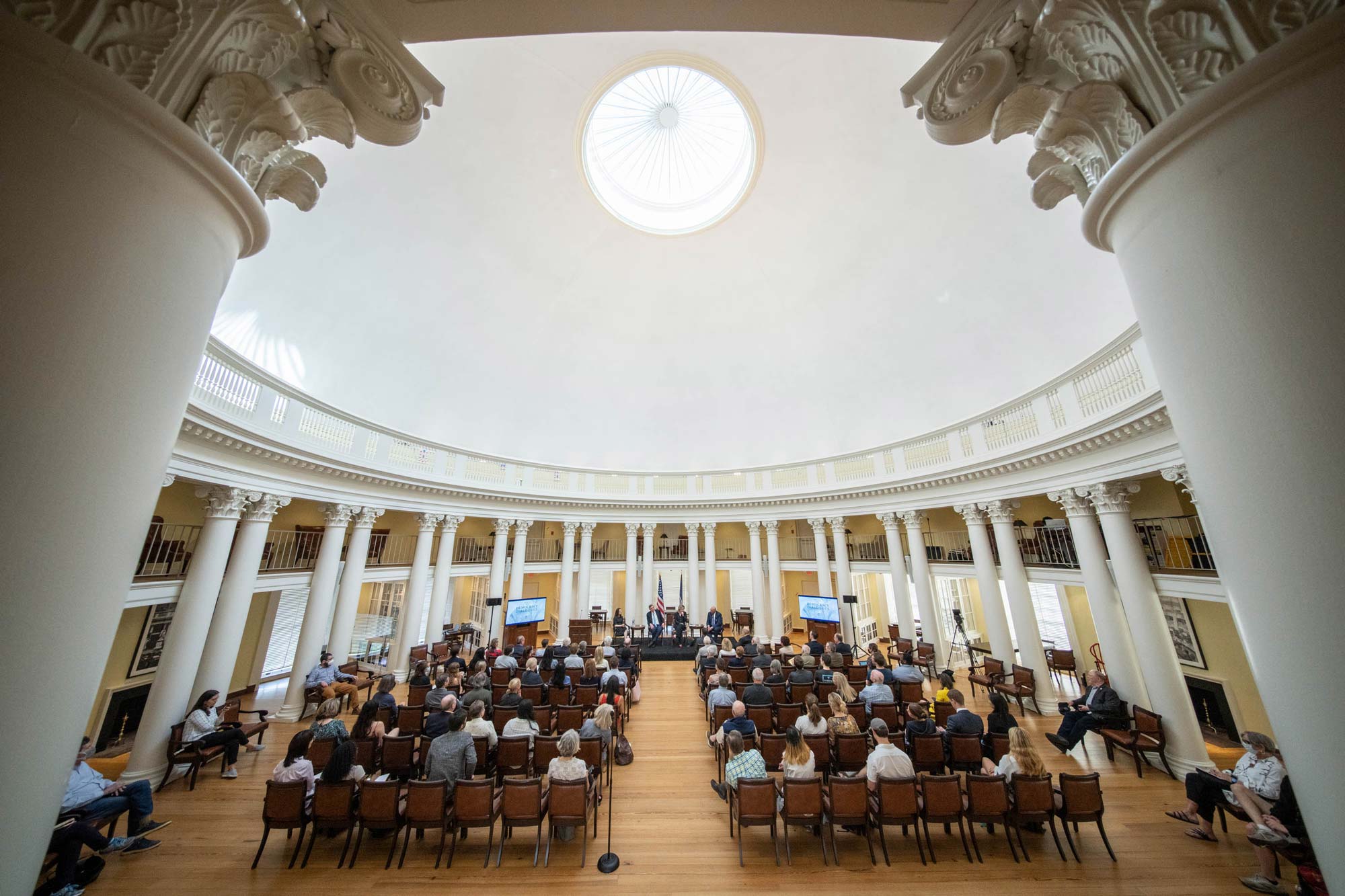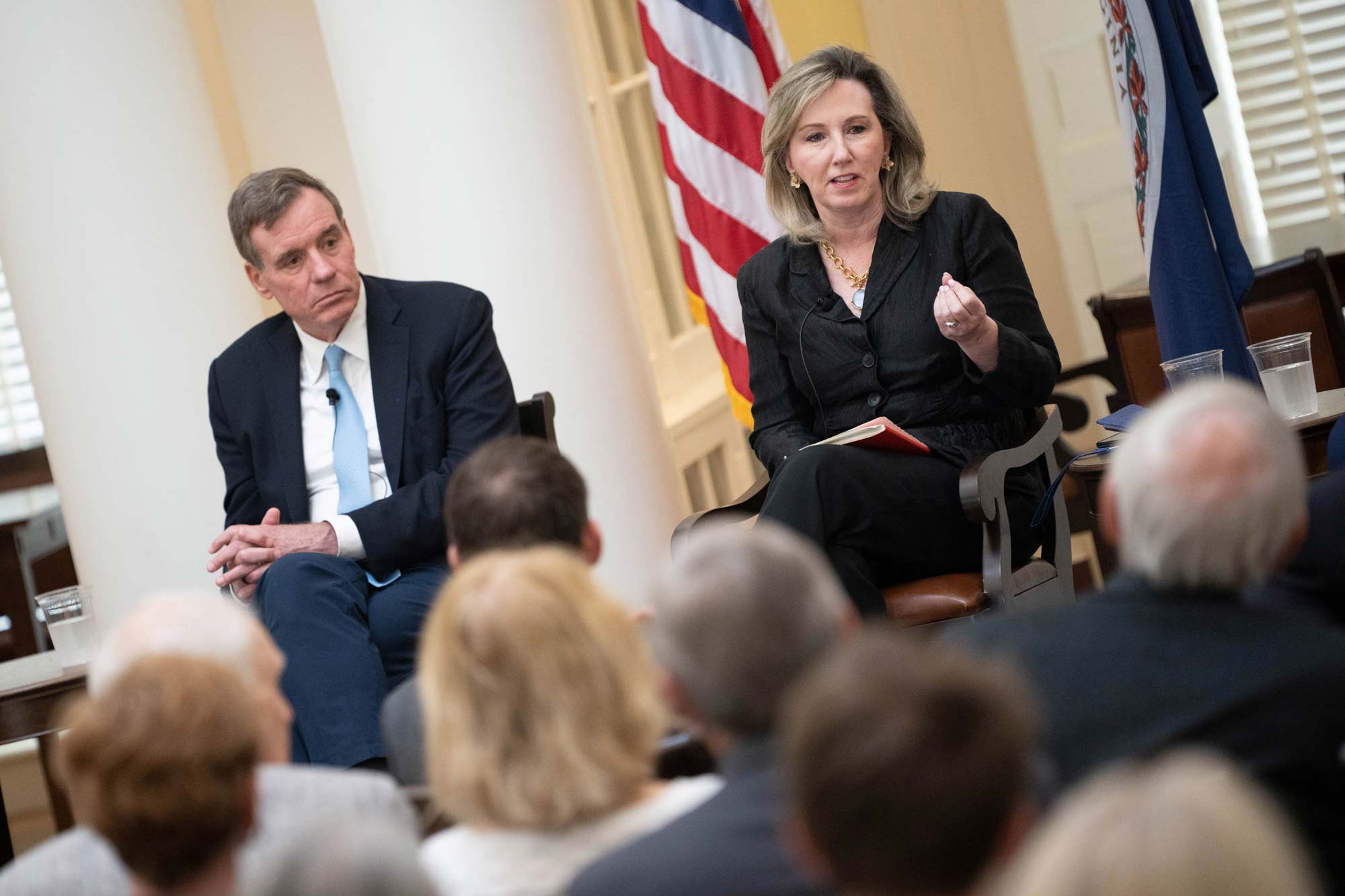In 1996, Section 230 of the federal Communications Decency Act was passed as a way to provide a legal shield for online platforms with user-generated content. It states, “No provider or user of an interactive computer service shall be treated as the publisher or speaker of any information provided by another information content provider.”
Speaking Thursday in the University of Virginia’s Rotunda, former U.S. Rep. Barbara Comstock called the rule “the 26 words that changed the Internet.”
Comstock was joined by U.S. Sen. Mark Warner as panelists for “Social Media vs. Democracy,” a Democracy Dialogues series event produced by UVA’s Karsh Institute of Democracy and co-sponsored by UVA’s Miller Center of Public Affairs. UVA law professor Danielle Citron, one of the foremost experts on digital privacy, and media studies professor Siva Vaidhyanathan, author of “Antisocial Media: How Facebook Disconnects Us and Undermines Democracy,” were the event’s moderators. UVA President Jim Ryan provided opening remarks.
The debate over Section 230’s power – something that has played out publicly in recent years and has only heated up since the 2020 presidential election – served as a driving point of discussion between Comstock, a Republican, and Warner, a Democrat.
In February 2021, Warner was part of a group of Democratic senators that introduced the Safeguarding Against Fraud, Exploitation, Threats, Extremism and Consumer Harms Act. Better known as the SAFE TECH Act, this legislation sought to reform Section 230 and allow social media companies to be held accountable for enabling such behavior as cyberstalking, targeted harassment and discrimination on their platforms.
“The basic idea is if I do some action that would be illegal in the real world, in terms of discrimination or harassment, or if I’m a TV station or radio station and I’m putting up duplicitous advertising that leads to a scam,” Warner said Thursday, “all those things are illegal in the tangible world. I think you should be able to bring a suit on those cases in the virtual world, on to the platforms.
“It doesn’t guarantee that you will be successful, but it will say there ought to be some path to redress.”

Event speakers, from left to right, UVA law professor Danielle Citron, U.S. Sen. Mark Warner, former U.S. Rep. Barbara Comstock, and UVA media studies professor Siva Vaidhyanathan. (Photo by Sanjay Suchak, University Communications)
Warner then referenced Herrick v. Grindr, a civil lawsuit made by Matthew Herrick against the online dating app after someone mimicked Herrick’s profile, leading to abuse and harassment. A U.S. federal appeals court refused to hold Grindr liable, however.












